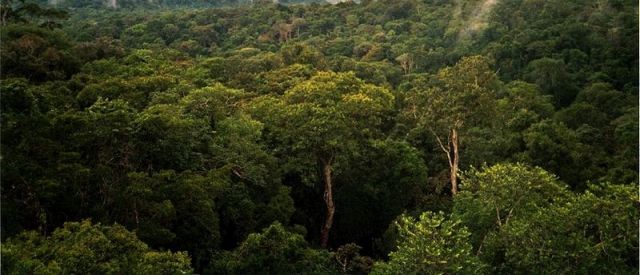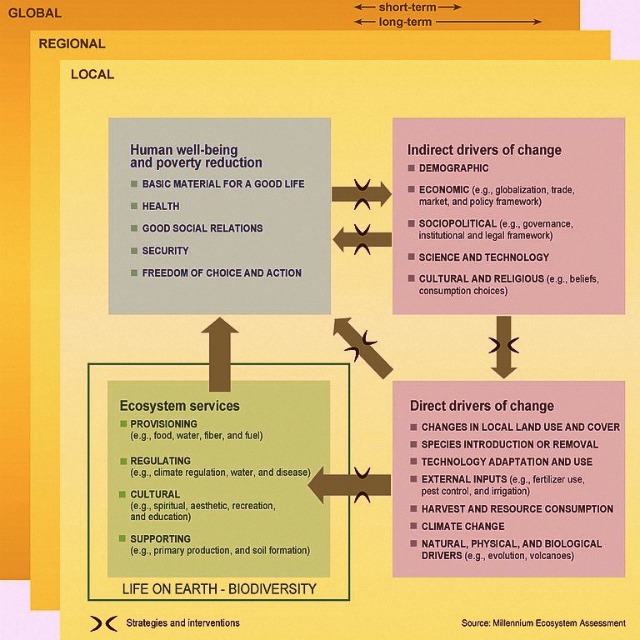Amazon rainforest: Phil P Harris via Wikimedia Commons.
A new paper in the prestigious science journal Nature assesses one of the big questions in ecology today: How do species extinctions rack up compared to other global change issues like global warming, ozone holes, acid rain, and nutrient pollution (overfertilization)?
The answer: Just as nasty. In fact species loss is likely to rank among the top five drivers of global change.
“Some people have assumed that biodiversity effects are relatively minor compared to other environmental stressors,” says lead author David Hooper of Western Washington University. “Our new results show that future loss of species has the potential to reduce plant production just as much as global warming and pollution.”
Studies in the past 20 years have demonstrated that more biologically diverse ecosystems are more productive. So there’s growing concern that the very high rates of modern extinctions from habitat loss, overharvesting, pollution, biological invasions, human overpopulation, and other human-caused environmental changes will diminish nature’s ability to provide goods and services important to all life (ours too)… like food, clean water, and a stable climate.
Schematic illustrating the relationship between biodiversity, ecosystem services, human well-being, and poverty, and where we can improve our strategies: Millennium Ecosystem Assessment via Wikimedia Commons
The team performed a meta-analysis of published data from 192 earlier studies to assess the effects of extinctions on productivity and decomposition:
- Productivity (the rate of production of biomass in an ecosystem, starting with plants producing life from sunlight)
- Decomposition (the work done by bacteria and fungi that releases nutrients back for recycling by the producers)
The stats:
- At intermediate levels of species loss (21–40%), plant production is reduced by 5–10%, comparable to previously documented effects of ultraviolet radiation (ozone hole) and global warming.
- At higher levels of species extinction (41–60%), dwindling productivity rivals the effects from ozone holes, acid rain, global warming, and nutrient pollution (overfertilization).
- At intermediate levels, species loss had equal or greater effects on decomposition compared to global warming and nutrient pollution.
From the paper:
[O]ur analyses clearly show that the ecosystem consequences of local species loss are as quantitatively significant as the direct effects of several global change stressors that have mobilized major international concern and remediation efforts.
The video is the best short describing the importance of biodiversity that I’ve seen.
The paper:
- David U. Hooper, E. Carol Adair, Bradley J. Cardinale, Jarrett E. K. Byrnes, Bruce A. Hungate, Kristin L. Matulich, Andrew Gonzalez, J. Emmett Duffy, Lars Gamfeldt & Mary I. O’Connor. A global synthesis reveals biodiversity loss as a major driver of ecosystem change. Nature (2012) doi:10.1038/nature11118

















